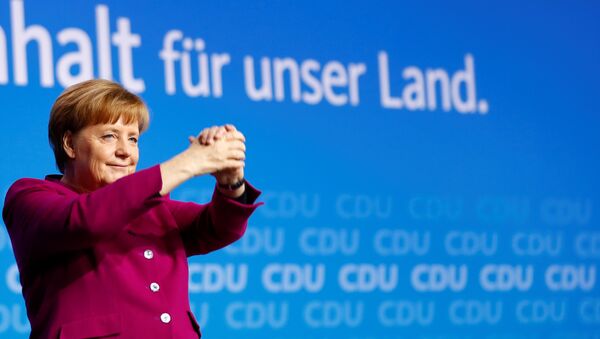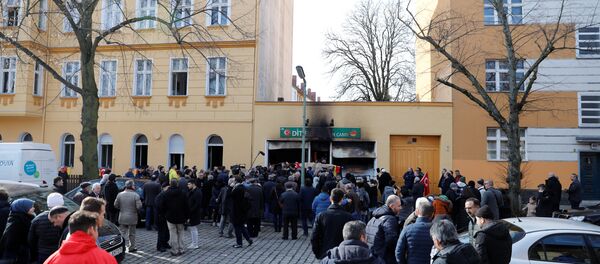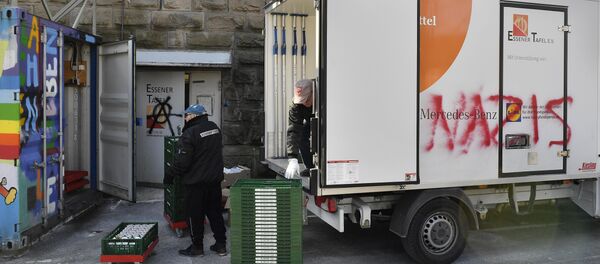Angela Merkel, who became the German chancellor for the fourth consecutive time, took oath in the Bundestag on Wednesday.
German President Frank-Walter Steinmeier has already confirmed Merkel in the office after the German parliament re-elected her.
"I swear to devote my efforts to the good of the German people, to multiply its wealth, to protect it from damage, to observe and protect the Basic Law and the laws of the federation, to faithfully perform my duties and observe justice for everyone. May God help me," Merkel said while pronouncing the text of the oath, fixed in the 56th article of the German Basic Law.
Angela Merkel has officially been re-elected by the German #Bundestag for her fourth term as Chancellor of the Federal Republic of #Germany. pic.twitter.com/uVp4JxJVla
— German Embassy (@GermanyinUSA) March 14, 2018
The moment when Angela Merkel said 'YES' to her fourth term to lead Germany as chancellor: pic.twitter.com/xEecbeFPuQ
— Ebubekir ISIK (@isik_ebubekir) March 14, 2018
As many as 364 of 692 lawmakers took part in the secret voting for Merkel's nomination in the Bundestag on Wednesday morning, with another four ballots declared invalid. The necessary minimum for her re-election was 355 votes of the current total of 709 Bundestag members.
The chancellor is the head of the German government elected by the Bundestag for four years. The chancellor appoints federal ministers and defines the country's political direction. The candidacy of the chancellor is put forward by the German president for consideration by the Bundestag. Then the president approves the chancellor and federal ministers, which are chosen upon the chancellor's recommendations. "Angela Merkel received the necessary majority, she was elected chancellor," President of the Bundestag Wolfgang Schaeuble said.
READ MORE: Little Trouble in Big Bundestag: Sputnik's Guide to Merkel's Coalition Fiasco
On Tuesday, German President Frank-Walter Steinmeier nominated Merkel for re-election as a chancellor after the day before Christian Democratic Union (CDU) leader Merkel, chairman of the Christian Social Union (CSU) Horst Seehofer and acting co-chair of the Social Democratic Party (SPD) Olaf Scholz signed a coalition agreement and the government was finally formed in Germany.
The formation of the government became possible after Merkel's CDU / CSU alliance and the Social Democratic Party of Germany (SPD) have completed the talks and achieved a deal on forming the coalition.
In December 2017, despite the SPD's previous unwillingness to form the Grand Coalition with Chancellor Angela Merkel's ruling conservative alliance between the Christian Democratic Union of Germany (CDU) and the Christian Social Union (CSU), sides entered coalition talks.
READ MORE: Germans Increasingly Opposed to Sanctions Against Russia — AfD Party Lawmaker
During its parliamentary election win in Germany on September 24, 2017, Merkel's CDU/CSU alliance obtained 33 percent of votes and secured 246 seats in the parliament, failing to secure an absolute majority. The SPD came second with 20.5 percent of the vote and 153 seats, while third place went to the Free Democratic Party, which got 10.7 percent and 80 seats.






